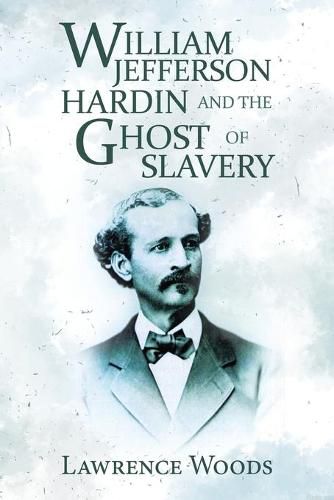Readings Newsletter
Become a Readings Member to make your shopping experience even easier.
Sign in or sign up for free!
You’re not far away from qualifying for FREE standard shipping within Australia
You’ve qualified for FREE standard shipping within Australia
The cart is loading…






This title is printed to order. This book may have been self-published. If so, we cannot guarantee the quality of the content. In the main most books will have gone through the editing process however some may not. We therefore suggest that you be aware of this before ordering this book. If in doubt check either the author or publisher’s details as we are unable to accept any returns unless they are faulty. Please contact us if you have any questions.
Early in his life, Hardin knew he was born a free person of color, and by the time he was twenty, he knew he had a more comprehensive education than most of the white men of his age. In the West, he actually looked French or Spanish, but he still was proud that he was of one-eighth African descent. In 1850 Hardin was twenty, when the Fugitive Slave Law created a terrible threat to a free person of color, as slave-catchers then roamed the northern states, seeking people they could seize, process through the poor enforcement of the law, and resell southward. He soon moved to Canada, as a safer place to live, but "didn't like" that country, and returned to Wisconsin (a part of the old Northwest Territory, where slavery was illegal). Then in 1857, the Supreme Court said that people of African descent were "inferior," whether slave or free. In Colorado in 1863, Hardin was a barber, that favorite occupation of African American men, who associated with the upper classes of white men, and if personable-as Hardin was-made valuable friends. Soon he was speaking to "overflow" crowds, even though he was telling the story of a Haitian slave's successful revolt against the French. He even got a job with the Denver mint. But although he had never been a slave, the ghost of slavery still lurked behind him, and an editor, writing about the mint job, said that Hardin had an "ugly black mug."
$9.00 standard shipping within Australia
FREE standard shipping within Australia for orders over $100.00
Express & International shipping calculated at checkout
This title is printed to order. This book may have been self-published. If so, we cannot guarantee the quality of the content. In the main most books will have gone through the editing process however some may not. We therefore suggest that you be aware of this before ordering this book. If in doubt check either the author or publisher’s details as we are unable to accept any returns unless they are faulty. Please contact us if you have any questions.
Early in his life, Hardin knew he was born a free person of color, and by the time he was twenty, he knew he had a more comprehensive education than most of the white men of his age. In the West, he actually looked French or Spanish, but he still was proud that he was of one-eighth African descent. In 1850 Hardin was twenty, when the Fugitive Slave Law created a terrible threat to a free person of color, as slave-catchers then roamed the northern states, seeking people they could seize, process through the poor enforcement of the law, and resell southward. He soon moved to Canada, as a safer place to live, but "didn't like" that country, and returned to Wisconsin (a part of the old Northwest Territory, where slavery was illegal). Then in 1857, the Supreme Court said that people of African descent were "inferior," whether slave or free. In Colorado in 1863, Hardin was a barber, that favorite occupation of African American men, who associated with the upper classes of white men, and if personable-as Hardin was-made valuable friends. Soon he was speaking to "overflow" crowds, even though he was telling the story of a Haitian slave's successful revolt against the French. He even got a job with the Denver mint. But although he had never been a slave, the ghost of slavery still lurked behind him, and an editor, writing about the mint job, said that Hardin had an "ugly black mug."